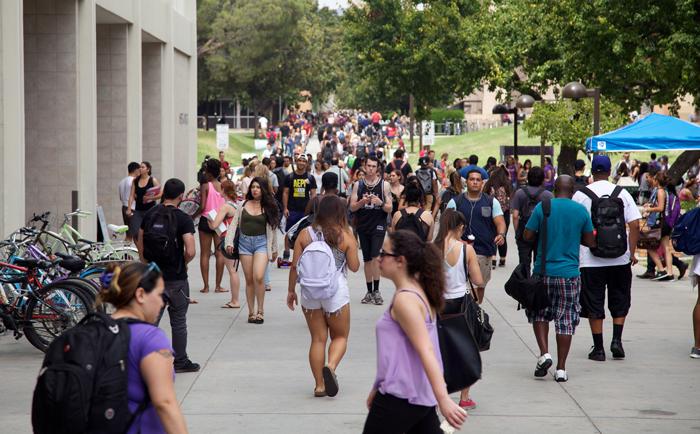Dear Editor:
Our collective work to end campus sexual misconduct is not done. Indeed, I regard the editorial, “When is it enough?” published on October 21, 2016, as a call to action incumbent upon all of us – administrators, faculty, staff, and students to cultivate a climate where the unmistakable message is clear: any and all forms of campus sexual misconduct are unacceptable.
While the editorial suggests that there are some students who may express a “lack of interest… or effort” when it comes to finding meaning in the student online training program on sexual violence prevention, I have experienced CSUN as a place where we care about each other. This is a university that is filled with students who have integrity and a sense of loyalty to each other as peers and Matadors. As just a few examples, I am encouraged by students who have taken the It’s On Us pledge, students who have attended Take Back the Night rallies, students who are peer educators committed to increasing awareness, and male students demonstrating leadership around issues of privilege, social norms and notions about masculinity, in efforts to effectuate a culture change.
The heartbreaking reality is that these incidents are occurring; and directly impacting the incidence of sexual misconduct requires purposeful and multi-tiered approaches for education at all levels of the campus and ensuring survivor support. The student online program is just one effort of many in raising awareness and educating our students and campus community about consent, rape culture, forms of sexual misconduct and gender-based violence and abuse, bystander intervention, and as the editorial astutely points out, the root causes of sexual violence. Expanded information on existing prevention initiatives and activities is also available on the Office of Equity and Diversity website.
There is also hope in knowing that the increase we are seeing every year in reports of sexual misconduct is an indication that students at CSUN are feeling more empowered to report their experiences and seek help for an otherwise nationally under-reported crime. It sounds simple, but in order to truly prevent sexual misconduct, individuals need to stop perpetrating. To help stop perpetration, survivors and bystanders must feel they have effective resources to pursue, that we have created an environment for survivors to make the best decisions about their individual healing, and that they will be supported and taken seriously.
It takes courage to look inward, speak out, and engage in these efforts meaningfully. At CSUN, we can lead the way on this issue, but it will take the full commitment of everyone in our community.
Susan Hua
CSUN Title IX Coordinator






